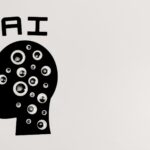In the field of medical research, clinical trials play a crucial role in advancing healthcare and developing new treatments. However, the process of collecting and analyzing data from these trials can be complex and time-consuming, especially when it comes to medical coding. Traditionally, manual coding of medical records has been the norm, but with advancements in machine learning and artificial intelligence, a revolutionary tool has emerged to transform the way clinical trial medical coding is conducted. In this article, we will explore the benefits and implications of this groundbreaking technology and its potential to revolutionize the field of medical research.
The Importance of Medical Coding in Clinical Trials:
Before delving into the revolutionary machine learning tool, it is crucial to understand the significance of medical coding in clinical trials. Medical coding involves the translation of medical information, such as diagnoses, procedures, and medications, into standardized codes. These codes are essential for organizing and analyzing data, ensuring consistency, and facilitating accurate reporting and reimbursement. However, the manual coding process is labor-intensive, time-consuming, and prone to human error, leading to delays and potential inaccuracies in data analysis.
The Emergence of Machine Learning in Clinical Trial Coding:
Machine learning, a subset of artificial intelligence, has gained momentum in various industries for its ability to analyze vast amounts of data and identify patterns. In the context of clinical trial medical coding, machine learning algorithms can be trained to recognize and classify medical concepts, thereby automating the coding process. This revolutionary tool has the potential to transform the efficiency, accuracy, and speed of medical coding, leading to significant advancements in clinical research.
Benefits of Machine Learning in Clinical Trial Medical Coding:
Increased Efficiency
By automating the coding process, machine learning eliminates the need for manual coding, saving time and resources. Researchers can focus more on data analysis and interpretation, accelerating the overall research timeline.
Improved Accuracy
Machine learning algorithms can be trained on vast datasets, enabling them to identify patterns and codes with a high level of accuracy. This reduces the risk of human error and ensures consistency in coding practices.
Enhanced Scalability
As clinical trial data volumes continue to grow, machine learning tools can handle large datasets effortlessly, making them highly scalable for complex research projects.
Real-Time Insights
Machine learning algorithms can provide real-time coding insights, allowing researchers to monitor and assess coding progress continuously. This facilitates prompt identification of potential coding errors or inconsistencies, enabling timely corrective actions.
Implementation Challenges and Considerations:
While the potential benefits of machine learning in clinical trial medical coding are significant, there are several challenges and considerations to address:
- Data Quality and Availability: Machine learning models require high-quality, labeled training data to perform effectively. Ensuring the availability of accurate and comprehensive training datasets can be a challenge in the healthcare industry.
- Ethical and Regulatory Compliance: The use of machine learning in medical coding raises ethical and regulatory considerations, including patient privacy and data protection. Ensuring compliance with applicable regulations, such as HIPAA, is paramount.
- Expert Oversight: While machine learning algorithms can automate the coding process, human expertise remains essential for validation, quality control, and addressing complex coding scenarios. The role of human experts should be redefined to maximize the synergy between automation and human intelligence.
Conclusion:
The advent of machine learning in clinical trial medical coding represents a significant breakthrough in medical research. By automating the coding process, this revolutionary tool offers increased efficiency, improved accuracy, scalability, and real-time insights. However, successful implementation requires careful consideration of data quality, ethical and regulatory compliance, and the role of human experts. As technology continues to evolve, machine learning in clinical trial medical coding has the potential to transform the way we conduct research, paving the way for faster, more accurate, and impactful advancements in healthcare.





